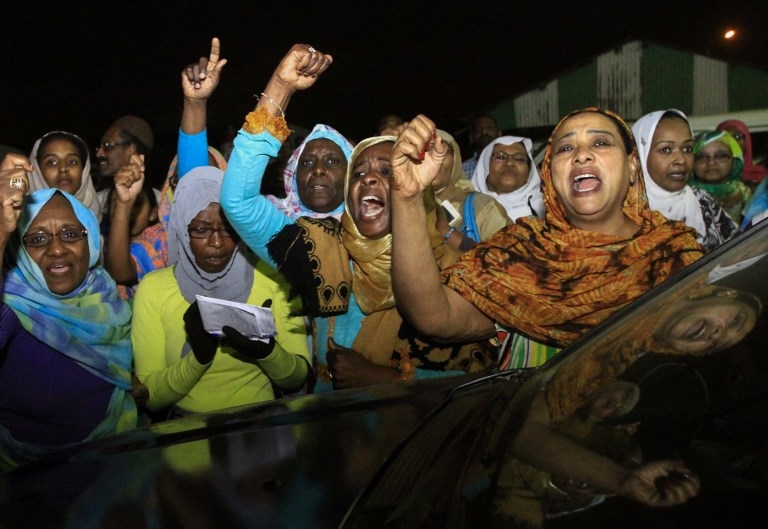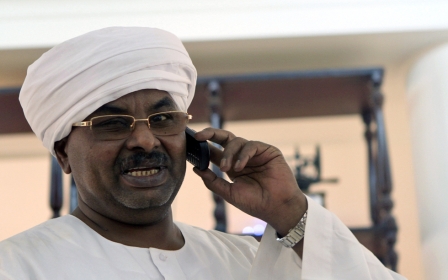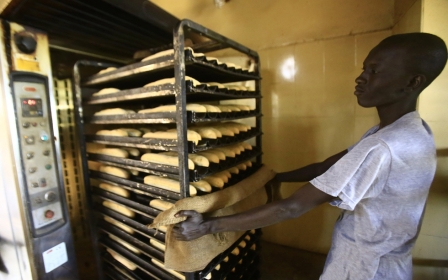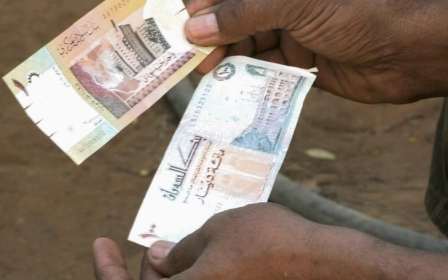Sudan frees dozens of activists arrested in food-price protests

Sudan on Sunday released dozens of opposition activists arrested last month in a crackdown on protests against rising food prices, an AFP correspondent reported.
The release of detainees, including some top opposition figures, came three days after the US embassy voiced concern over the arrests and said many of them were being held in "inhumane conditions".
A group of people started a sit-in outside one of the prisons, saying they would not leave until all the political prisoners were freed, Reuters reported.
Those released emerged from Kobar prison in northern Khartoum shouting "Freedom! Justice! Revolution!" the correspondent reported, after authorities had invited journalists to the scene.
Family members
They were greeted and hugged by family members who had been waiting outside for several hours.
"According to President Omar al-Bashir's order, all detainees are being released," Abdelrehman al-Sadiq, a senior aide to Bashir, told reporters.
On Thursday, the US embassy said that "hundreds of political leaders, activists and ordinary citizens" were being detained by Sudanese authorities.
Many of the detainees were being "held in inhumane and degrading conditions, and without access to lawyers or family," the embassy said in a statement.
Freed detainees said they were expecting their release amid the political situation in the country.
"But we are still not fully free because several of our colleagues are still detained," said Al-Sidiq Al-Sadiq, son of former premier Sadiq al-Mahdi, whose government was ousted by Bashir in a coup in 1989.
"The conditions that took us to jail have still not changed. There are still some laws that restrict freedoms."
During their detention, some prison officers had treated them well but "some did not," he said.
Those freed on Sunday included Fadlalla Burma Nasir and Sarah Nugdallah, senior leaders of Sudan's main opposition Umma Party, and women's rights activist Amal Habbani.
Sporadic protests have erupted since early January in Khartoum and some other parts of Sudan after the opposition and activists called for anti-government demonstrations to protest a surge in food prices.
The US in October lifted 20-year-old sanctions on Sudan, prompting calls from the International Monetary Fund for the African country to float its currency among other measures that it said could help its economy recover.
Devalued currency
Sudan rejected floating the currency but devalued it in January and cut wheat subsidies, sending the pound’s value plummeting on the black market and causing a doubling of bread prices that led to January’s demonstrations.
The weak black market rate of the pound has also forced authorities to slash the rate at which banks can trade dollars.
Sudan’s economy has been struggling since the south seceded in 2011, taking with it three-quarters of what had been its oil output.
Anti-riot police and security agents have so far managed to disperse the rallies.
Sudanese authorities are eager to prevent a repeat of deadly unrest that followed an earlier round of subsidy cuts in 2013.
Rights groups say dozens of people were killed when security forces crushed 2013 demonstrations, drawing international condemnation.
New MEE newsletter: Jerusalem Dispatch
Sign up to get the latest insights and analysis on Israel-Palestine, alongside Turkey Unpacked and other MEE newsletters
Middle East Eye delivers independent and unrivalled coverage and analysis of the Middle East, North Africa and beyond. To learn more about republishing this content and the associated fees, please fill out this form. More about MEE can be found here.




